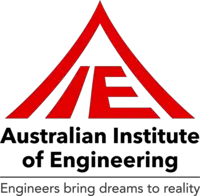
How do I become a hydraulic fitter?
Certificate III in Engineering - Mechanical Trade
- There are no mandated entry requirements.








Advanced Diploma of Mechanical Engineering Technology
- There are no mandated entry requirements.
 Engineering Institute of Technology
Engineering Institute of Technology
Undergraduate Certificate in Mechanical Engineering
- There are no mandated entry requirements.
 Engineering Institute of Technology
Engineering Institute of Technology
Diploma of Engineering - Technical
- There are no mandated entry requirements.







Certificate IV in Engineering
- There are no mandated entry requirements.








Diploma of Engineering – Advanced Trade
- There are no mandated entry requirements.





Certificate IV in Engineering (Fluid Power)
- There are no mandated entry requirements.



Related occupations
Mechanical Fitter
Mechanical Fitters assemble and repair machinery using metal parts, assessing materials and ensuring equipment performance.
Automation Engineer
Automation Engineers design and maintain automated manufacturing processes, enhancing efficiency while ensuring quality standards are met.
Plant Engineer
A Plant Engineer oversees equipment and systems in a plant, ensuring operations run smoothly, conducting assessments, and implementing improvements.
Mechanical Engineer
A Mechanical Engineer oversees mechanical operations in a plant, designing and monitoring equipment like engines and turbines for optimal performance.
Apprentice Engineer
An Apprentice Engineer trains in creating and maintaining machinery parts, uses various tools, and must follow instructions, work in teams, and be adaptable.
Engineering Tradesperson
An Engineering Tradesperson creates and maintains parts for construction projects, using various tools and machinery while managing multiple projects effectively.
Advanced Engineering Tradesperson
An Advanced Engineering Tradesperson handles complex projects, using tools and machinery, leading teams, and ensuring quality and safety standards.
Industrial Electrician
An Industrial Electrician performs electrical work in industrial settings, including installations, maintenance, fault diagnosis, and safety checks.
Machinist
A Machinist operates machinery to create, fit, and verify metal parts, ensuring precision, problem-solving, and teamwork in various locations.
Hydraulic Mechanic
A Hydraulic Mechanic fixes hydraulic machinery, handling repairs, inspections, and maintenance across industries and environments.
Plant Mechanic
A Plant Mechanic repairs and maintains heavy machinery, conducts inspections, sources parts, and works in workshops or on-site.
Manufacturing Engineer
A Manufacturing Engineer maintains and repairs factory equipment, develops production systems, and solves technical issues as part of a team.
Research Engineer
A Research Engineer develops and tests new engineering products and systems, solving problems with existing processes while requiring strong analytical and communication skills.
Engineering Patternmaker
An Engineering Patternmaker creates patterns from materials like wood and polymers for various industries, requiring technical skills and precision.
Maintenance Engineer
A Maintenance Engineer services equipment, conducts maintenance, resolves issues, and works across industries, requiring strong technical skills and safety focus.
CNC Programmer
A CNC Programmer designs and configures CNC programs for manufacturing, using technical skills and blueprints, while ensuring safety and precision.
Apprentice Industrial Designer
An Apprentice Industrial Designer aids in developing industrial products by designing concepts, selecting materials, and overseeing manufacturing under guidance.
Industrial Engineer
An Industrial Engineer enhances processes and systems for efficiency, quality, and productivity, ensuring safety and cost-effective solutions.
Materials Engineer
A Materials Engineer develops and tests materials for products, focusing on durability, cost, and environmental impact across various industries.
Maintenance Fitter
A Maintenance Fitter produces metal parts for machinery, determining specifications and materials, while ensuring safety and teamwork.
Field Engineer
A Field Engineer installs, maintains, and inspects equipment, adapting technical skills to solve problems and work within a team.
Asset Engineer
An Asset Engineer manages equipment installation and maintenance, conducting tests, repairs, and ensuring compliance while collaborating with a team.
Engineering Consultant
An Engineering Consultant advises on construction projects, monitors progress, recommends materials, and ensures compliance with regulations.
Workshop Supervisor
A Workshop Supervisor manages daily workshop operations, ensuring safety, quality, and timely completion of tasks, while leading and organising staff.
Production Engineer
A Production Engineer designs, maintains, and optimises manufacturing equipment, ensuring efficient production, reduced waste, and effective teamwork.
Process Engineer
A Process Engineer designs and improves manufacturing equipment, boosts production, reduces waste, and adapts to maintain efficiency.
Design Engineer
A Design Engineer creates and improves products, collaborates on designs, tests prototypes, and ensures efficiency while managing multiple projects.
Industrial Designer
An Industrial Designer creates product designs through market research, sketching, and working with engineers to ensure function, safety, and style.
Automotive Engineer
An Automotive Engineer designs and develops vehicles, focusing on performance, safety, and efficiency through research, prototyping, and testing.
Quality Assurance Engineer
A Quality Assurance Engineer ensures products meet quality standards by developing testing plans, analysing data, and collaborating with teams.
Instrumentation Engineer
Instrumentation Engineers design and maintain control systems in industrial settings, ensuring efficient and safe operations of instruments.
Computer Hardware Engineer
Computer Hardware Engineers design and test physical components for computer systems, ensuring efficient hardware performance and compatibility.
Product Design Engineer
A Product Design Engineer innovates and refines products using engineering principles, collaborating with teams to meet user needs and standards.
Composites Engineer
A Composites Engineer designs, tests, and develops strong, lightweight composite materials for industries, focusing on performance, durability, and meeting specifications.
Product Development Engineer
A Product Development Engineer designs innovative products from concept to production, collaborating with teams to meet customer needs and standards.
Research and Development Engineer
A Research and Development Engineer designs and tests innovative technologies to meet industry needs, collaborating with teams to ensure compliance and performance.
Process Control Engineer
A Process Control Engineer designs and optimises automated systems in manufacturing, focusing on efficiency, safety, and quality improvement.
Plastics Engineer
A Plastics Engineer develops and optimises plastic materials and products, focusing on design, testing, and production efficiency across various industries.
Corrosion Engineer
A Corrosion Engineer prevents material degradation by analysing structures and designing solutions to enhance the lifespan of equipment and infrastructure.
Mechanical Designer
A Mechanical Designer creates precise drawings and designs for mechanical systems using CAD software, ensuring safety and performance standards.
Mechanical Design Engineer
A Mechanical Design Engineer creates and develops mechanical systems using CAD software, ensuring safety and efficiency in various industries.
Control Systems Engineer
A Control Systems Engineer designs and manages automated systems, optimising performance and safety across industries like manufacturing and energy.
Junior Engineer
A Junior Engineer assists senior engineers in designing and maintaining projects, conducting inspections, and analysing data to ensure success.
Engineering Technician
An Engineering Technician supports engineers in designing and maintaining systems across various sectors, ensuring project standards and efficiency.
Manufacturing Technician
A Manufacturing Technician operates and maintains production equipment, ensuring efficiency, troubleshooting issues, and upholding safety standards.
Mechanical Engineering Technician
A Mechanical Engineering Technician aids in designing and maintaining mechanical systems, ensuring efficiency and adherence to safety standards.
Fluid Power Engineer
A Fluid Power Engineer designs and maintains hydraulic and pneumatic systems in machinery, ensuring efficiency and safety in various industries.
Common questions
How much does a Hydraulic Fitter earn?
In Australia, a full time Hydraulic Fitter generally earns $1,680 per week ($87,360 annual salary) before tax. This is a median figure for full-time employees and should be considered a guide only. As you gain more experience you can expect a potentially higher salary than people who are new to the industry.
What are the job opportunities for a Hydraulic Fitter?
This industry has seen a slight decrease in employment numbers over the last five years. There are currently 62,000 people working in this field in Australia and many of them specialise as a Hydraulic Fitter. Hydraulic Fitters may find work across all regions of Australia.
Source: Australian Government Labour Market Insights
How do I become a Hydraulic Fitter?
If you’re interested in a career as a Hydraulic Fitter, consider enrolling in a Certificate IV in Engineering. You could also specialise your skills with a Certificate IV in Engineering (Fluid Power), a Certificate IV in Engineering (Maintenance) or a Certificate IV in Engineering (Instrumentation). You may also decide to further your skills with a Diploma of Engineering – Technical.
Further reading


Most popular manufacturing courses
19th July 2022)

